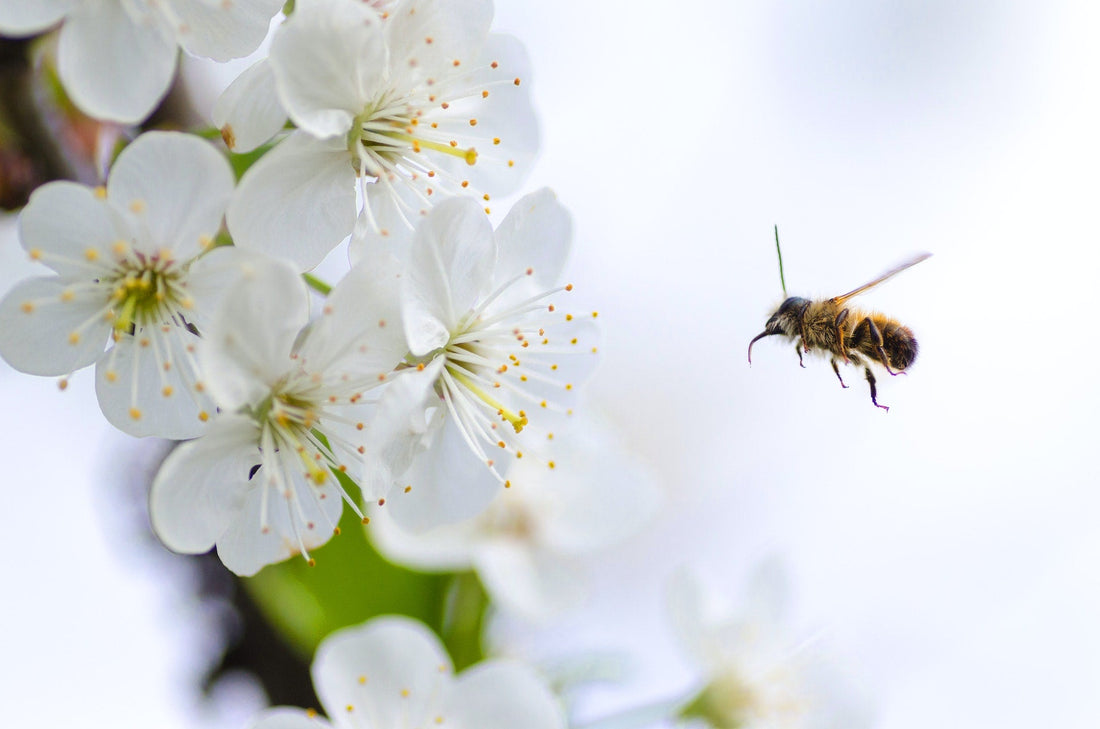
Natural Remedies for Spring Allergies: These Tips Are Nothing to Sneeze At
Share
It’s that time of year again, when the trees start to bloom and the bees buzz happily in the sunshine. But for millions of people, springtime also means the return of seasonal allergies.
Approximately a third of American adults (an estimated 67 million people) suffer from spring allergies each year. “Allergies are the sixth leading cause of chronic illness in the U.S.,” reports the Asthma and Allergy Foundation of America. “Seasonal allergic rhinitis is an allergic reaction to pollen from trees, grasses, and weeds. This type of rhinitis occurs mainly in the spring and fall when pollen from trees, grasses, and weeds are in the air.”
And while seasonal allergies are highly prevalent, you don’t have to shut yourself indoors or avoid going outside. In fact, before turning to over-the-counter allergy medications, there are various natural — and effective — ways to reduce your allergic reaction to pollen and other seasonal allergy triggers.
Histamines 101: What Causes Spring Allergies?
 Allergies can be a real nuisance, causing itchy eyes, runny noses, and constant sneezing. If you’re one of the many people affected by seasonal allergies, understanding why these symptoms occur can help you better manage your symptoms.
Allergies can be a real nuisance, causing itchy eyes, runny noses, and constant sneezing. If you’re one of the many people affected by seasonal allergies, understanding why these symptoms occur can help you better manage your symptoms.
When your body is exposed to pollen and other allergens, there are two chemicals responsible for your allergic reaction: histamine and slow-reacting substance (SRA-A). “Of these two, histamine is the chemical responsible for the side reactions we associate with allergies such as itching, swelling, and a runny nose,” explains Bridgewater State University.
Histamines are natural chemicals that your body produces in response to an allergen. When histamines are released in response to an allergen, they bind to special receptors on cells in your body, such as those in your nose and eyes.
Histamines work by causing inflammation, which is your body’s way of trying to expel the allergen from your system. This inflammation is actually what causes symptoms like congestion and watery eyes.
Can Antihistamines Stop Spring Allergies?
Medications for spring allergies, such as antihistamines, work by blocking these receptors. This can help reduce or even eliminate your allergy symptoms. There are many different types of antihistamines available, both over-the-counter and by prescription, so it’s important to talk to your doctor about which one may be right for you.
However, antihistamines are not without potential risks and side effects. The National Library of Medicine warns that common side effects may include:
- Vision problems, including blurry vision
- Changes in your appetite and dry mouth
- Drowsiness or dizziness, including a potential higher risk for slips and falls if you are a senior citizen
- Mood changes, such as higher irritability or feeling anxious or nervous
Before resorting to a potentially problematic medication, talk to your doctor about natural remedies to help reduce or even eliminate your spring allergies and allergy symptoms.
4 Natural Remedies For Spring Allergies
1. Reduce Allergy Triggers in Your Home
While we can’t live in a trigger-free bubble, you can significantly reduce the level of seasonal allergy triggers within your home:
- Keep your windows and doors closed to prevent pollen from entering your home
- Use a HEPA air purifier to remove allergens from the air
- Shower and change your clothes after spending time outdoors, as this can help remove pollen from your body and clothing
2. Watch the Weather
Weather and environmental factors also play a role in spring allergies. Warm, windy, and dry days are more likely to cause pollen to spread, while rainy and cloudy days can wash away pollen and reduce allergy symptoms. Climate change and air pollution may also be worsening allergy symptoms over the years by increasing pollen production and making the air quality worse.
Before heading outdoors, check the U.S. government’s Air Quality Index for your area and adjust your schedule and plans accordingly if you see poor quality forecast for your region.
3. Reduce Your Stress
Now that you understand the role of histamines, you may be surprised to learn how stress affects this chemical in your body.
“Feeling stressed for any reason can affect allergies, reports Harvard Medical School, pointing out that this is a rarely discussed aspect of allergy management. “One effect is psychological. Stress amplifies our emotional reaction to any symptoms we are having
4. Take Natural Supplements That Influence Histamine Levels
Quercetin is a plant compound found in foods like grains and fruits. And it may prove very effective in reducing your histamine levels.
“Quercetin can help stabilize the cells that release histamine in the body and thereby have an anti-inflammatory and antihistamine effect,” explains Mount Sinai Hospital. “In test tubes, quercetin prevents immune cells from releasing histamines, which are chemicals that cause allergic reactions. As a result, researchers think that quercetin may help reduce symptoms of allergies, including runny nose, watery eyes, hives, and swelling of the face and lips.”
BioPro-Plus 500 can also help. Remember, histamines are part of your body’s immune response. BioPro-Plus 500’s natural, research-backed ingredients help maintain a healthy and well-balanced immune system, ensuring your body’s response to allergy triggers don’t swing through extremes.
Other natural supplements that research suggests may improve your spring allergies include:
- Echinacea
- Pine bark extract
- Vitamin C
- Omega-3s
- Grape seed extract
- Spirulina
As you can see, spring allergies are nothing to sneeze at. But if you’re one of the 67 million American adults who suffer from allergies every spring, you don’t have to simply put up with your symptoms.
References:
- https://aafa.org/allergies/allergy-facts/
- https://pubmed.ncbi.nlm.nih.gov/5879/
- https://vc.bridgew.edu/cgi/viewcontent.cgi?article=1540&context=br_rev
- https://medlineplus.gov/ency/patientinstructions/000549.htm
- https://www.health.harvard.edu/diseases-and-conditions/is-stress-making-your-allergy-symptoms-worse
- https://www.mountsinai.org/health-library/supplement/quercetin
